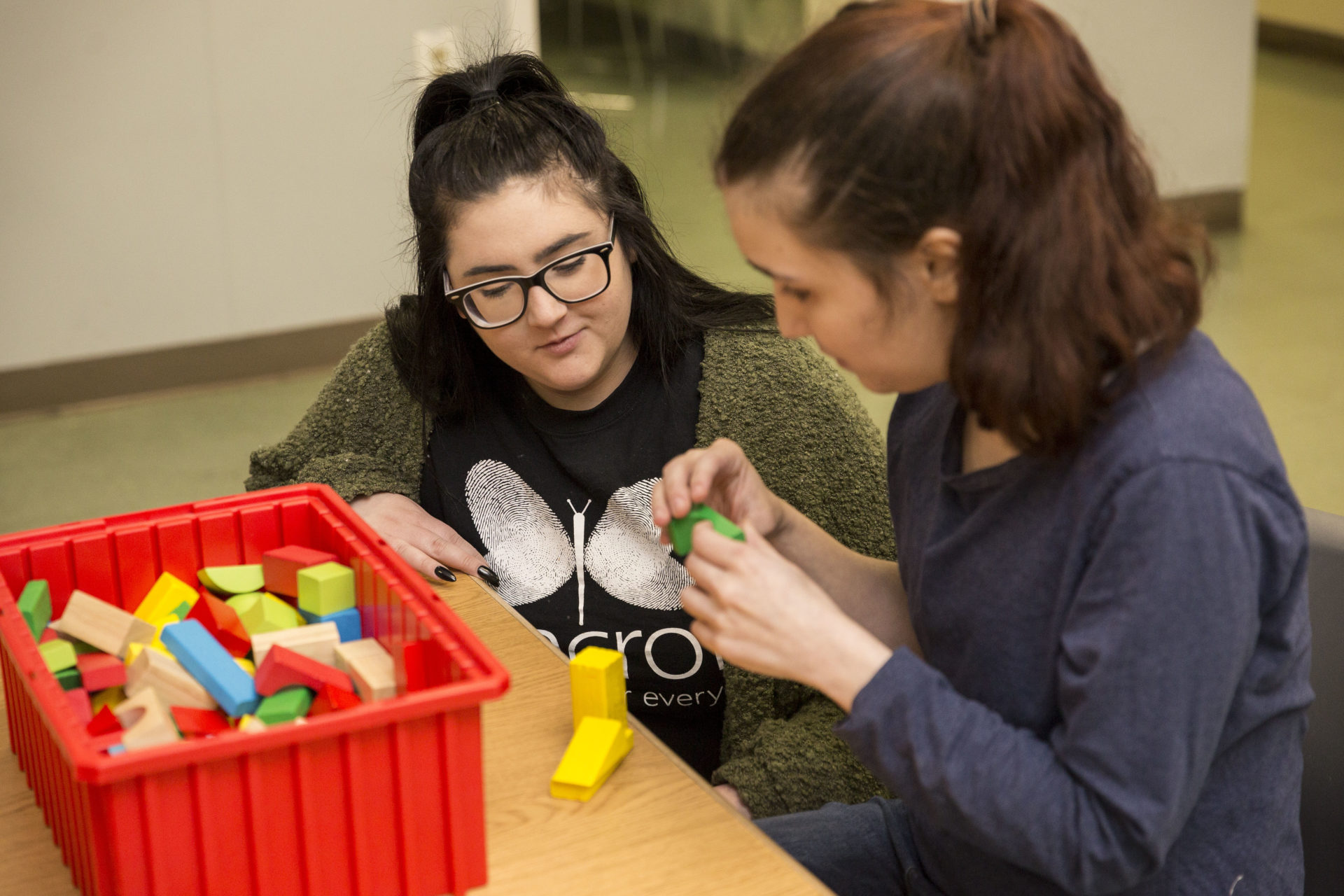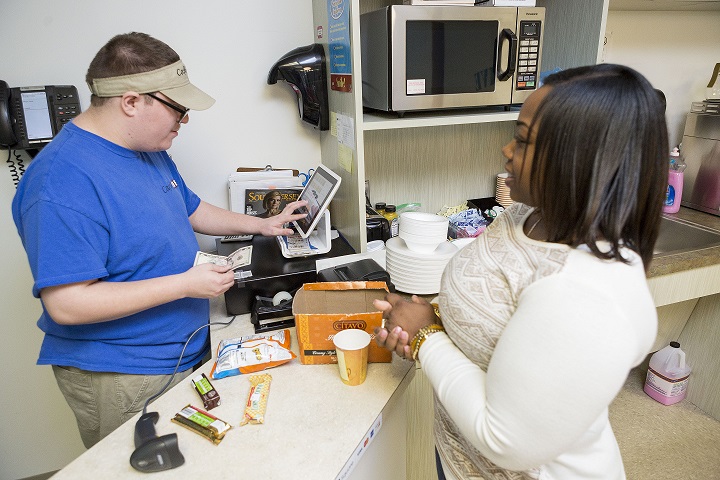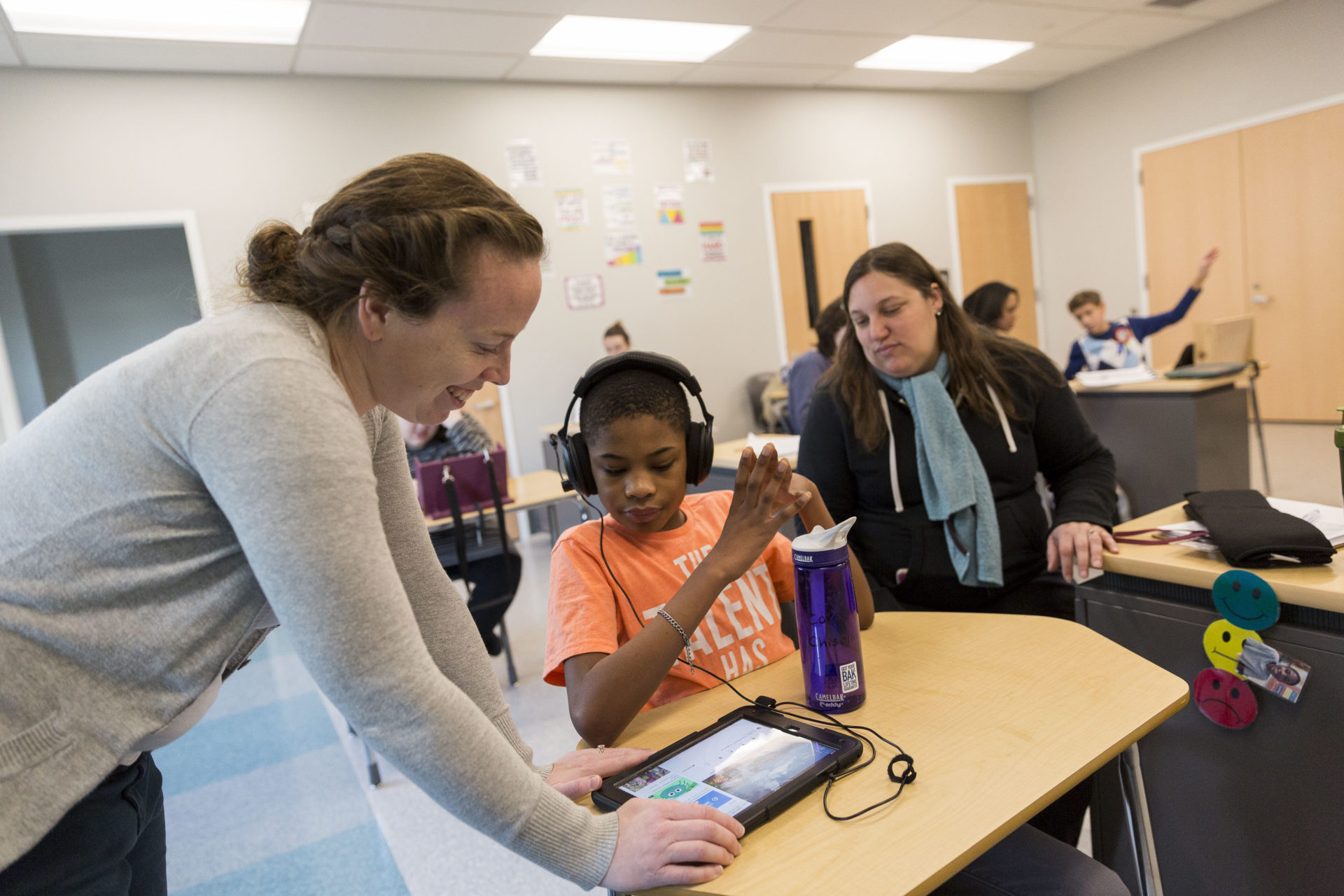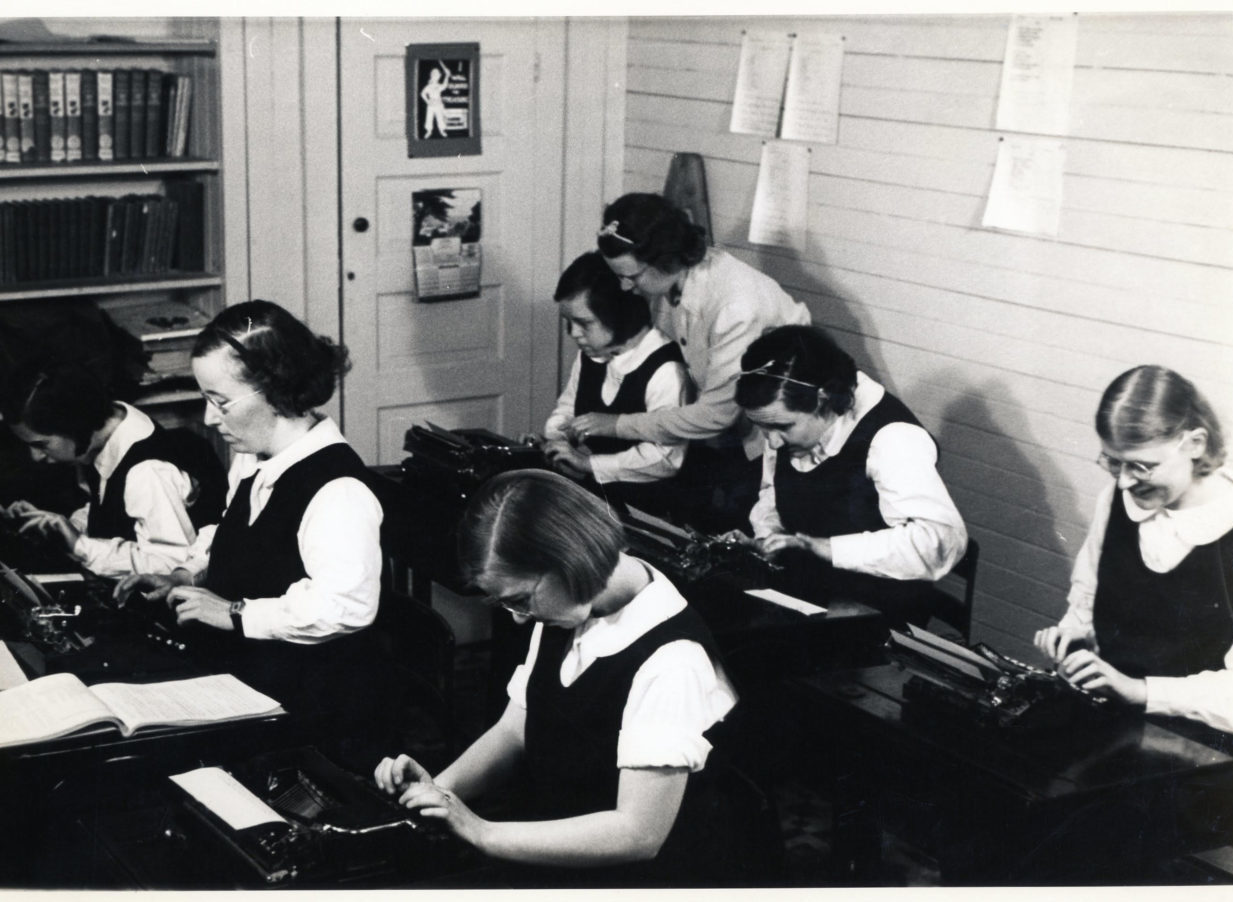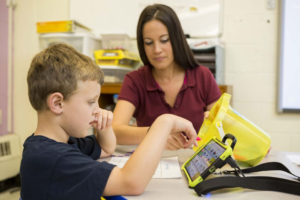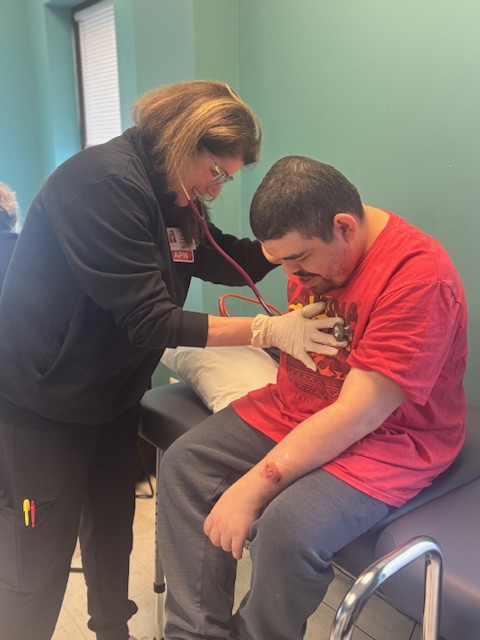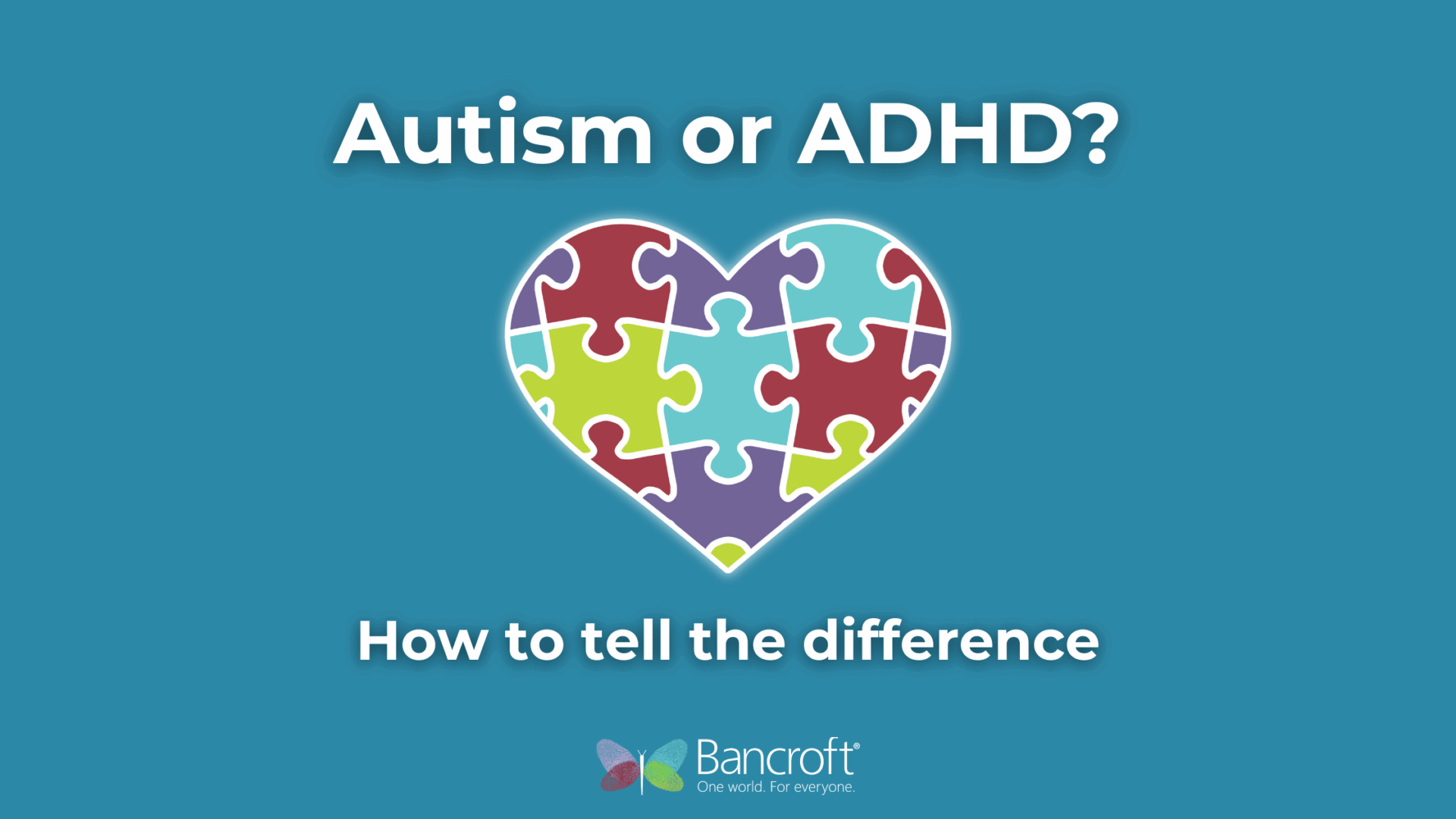 By Michelle Frankenthaler, MCD, CCC-SL
By Michelle Frankenthaler, MCD, CCC-SL
Senior speech therapist at The Bancroft School
Two of the hallmark characteristics of children with autism are difficulty with communication and social interaction. Speech therapists play a vital role in addressing children’s overall communication skills, to ease those challenges and give that child the greatest chance at success at home, at school, and in the community.
Our focus is on their overall communication abilities. This includes both verbal and nonverbal expression; how the child receives and processes verbal information; how they socialize; and assessing their cognitive-linguistic skills, which involves problem-solving, sequencing, etc.
Speech therapists are also involved in teaching eating skills.
As a parent, when should I worry about my child’s speech or communication?
It is vital that you work with your pediatrician and share any concerns you have about your child’s development. You also should know a few key communication milestones:
- Smiles by 2 months of age; laughs and giggles around 4 to 5 months
- Plays peek-a-boo around 9 months of age
- Makes eye contact with people during infancy
- Tries to say words you say between 12 and 18 months of age
- Uses 5 words by 18 months of age
- Copies your gestures like pointing, clapping, or waving
- Imitates you, i.e., pretends to stir a bowl of pancake mix when you give him a spoon and bowl or pretends to talk on the phone with a play cell phone
- Points to show you something interesting or to get your attention by 18 months of age
It’s just as important to look at how your child is playing; children learn through play and they also express themselves through play. A lack in these skills can be an indicator.
How can I request a speech evaluation?
Your pediatrician can help you with this. Federal law provides parents with access to therapies for autism in infancy. Early intervention is linked to better outcomes as a child ages.
What will an evaluation entail?
A speech therapist will look at the following skills during an evaluation:
- Expressive language (How a child communicates their wants and needs)

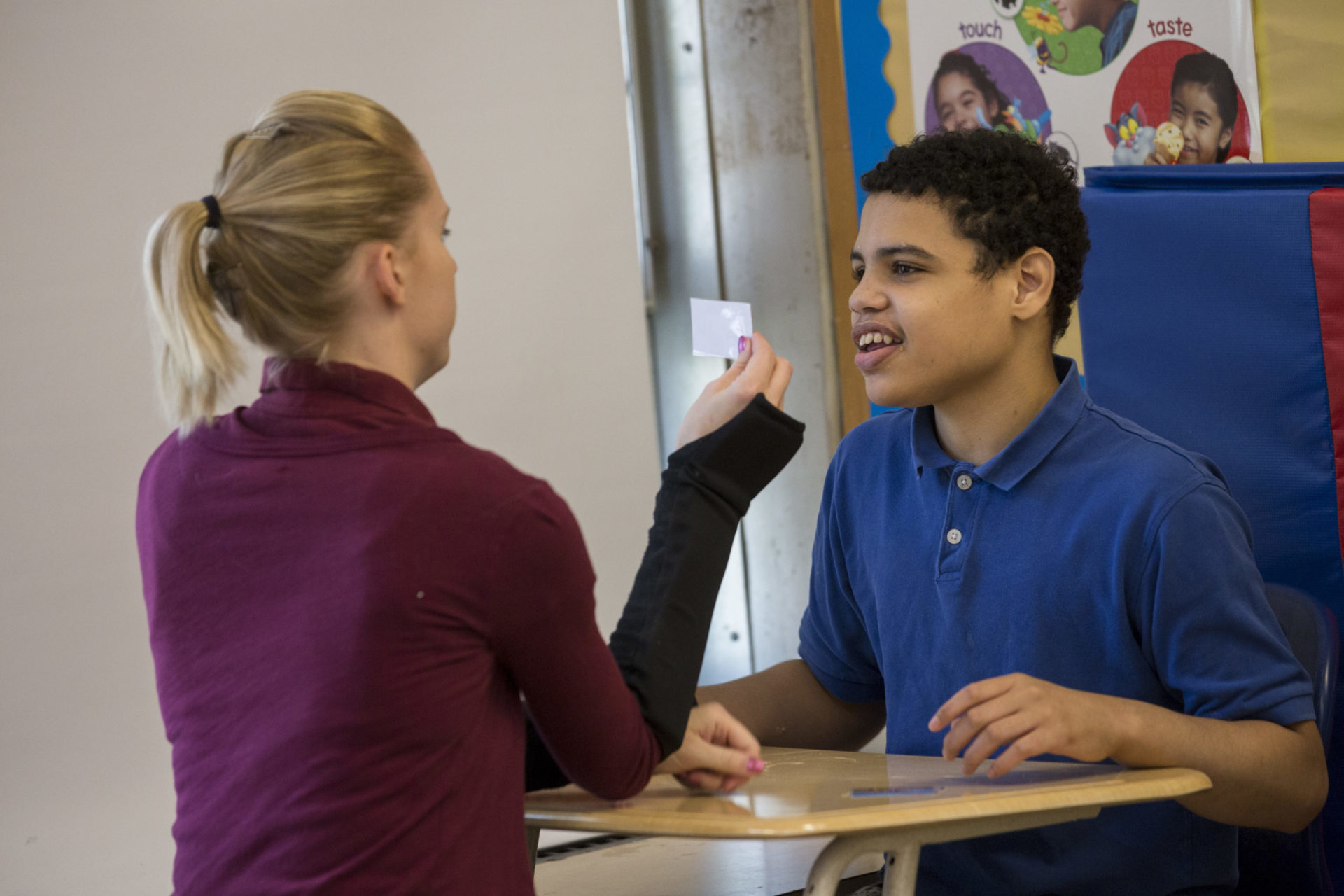
- Speech clarity
- Voice
- Receptive language
- Social skills
- Feeding/swallowing
This is done through formal testing, observations, parent interviews, and play.
What does a speech therapy session look like?
There is no “typical” session; each session is individualized to the child. It could involve sitting
at a table doing drills, working in the classroom, or going out in the community. It might incorporate toys, games, or sensory items – or maybe it’s doing an activity and describing what is happening. Therapy can also be in a small group, working on similar skills. In a classroom setting, a therapist might work next to a child, supporting a lesson the teacher is leading. The bottom line is we want the children (and the therapist!) to to have fun, and not view therapy as work.
Role of Assistive Communication Devices — is this related to speech therapy?
|
|
An important component to speech therapy is providing children an appropriate way to assist them in communicating. About 40 percent of students in our program use an augmentative communication device – this could be anywhere from speech generating devices to the Picture Exchange Communication System (PECS), as well as the latest mobile apps for tablets and iPads. Bancroft Assistive Technology associates diagnose the challenge and prescribe the most appropriate solution to introduce or improve communication, mobility and accessibility and learning devices.
It’s also important that parents and families are familiar with these devices and their capabilities so progress can continue at home and in the community. Bancroft offers training for parents to best utilize speech skills for their child.

